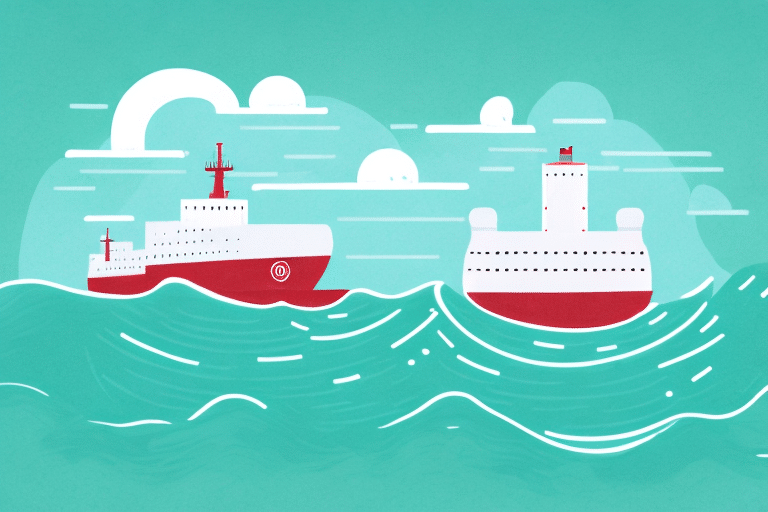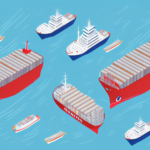Understanding Freight Insurance and Its Importance
As a business owner, effectively managing costs is crucial to maintaining profitability. Among the significant expenses is freight insurance, which safeguards your business against financial losses due to damage or loss of goods during transportation. Whether shipping domestically or internationally, having the right freight insurance ensures your goods are protected throughout their journey.
The Fundamentals of Freight Insurance
What is Freight Insurance?
Freight insurance is a vital component of logistics operations. It provides financial protection against the risks associated with the transportation of goods. Without adequate insurance, businesses may face substantial losses in the event of unforeseen incidents.
Types of Freight Insurance
- All-Risk Insurance: Offers comprehensive coverage for a wide range of risks, making it the most extensive type of freight insurance.
- Named-Peril Insurance: Covers specific risks listed in the policy, such as theft, fire, or natural disasters.
- Contingent Insurance: Provides coverage when the primary insurance fails to cover a loss.
Choosing the right type of insurance depends on the nature of your goods and the specific risks involved in their transportation.
Understanding the Claims Process
In the event of damage or loss, filing a claim with your insurance provider is essential. The process requires detailed documentation, including photos, receipts, and shipping documents. Partnering with a reputable insurance provider can streamline this process, ensuring efficient and fair handling of claims.
Factors Influencing Freight Insurance Costs
Mode of Transportation
The cost of freight insurance varies with the mode of transportation. For instance, air freight insurance is typically more expensive than ocean freight insurance due to the higher risks associated with air travel. According to the Bureau of Transportation Statistics, air transport accounts for a larger percentage of freight insurance claims, contributing to higher premiums.
Value and Type of Goods
High-value items, such as electronics or jewelry, require higher coverage limits, increasing insurance costs. Additionally, goods that are hazardous or perishable demand specialized insurance policies, further impacting premiums.
Shipment Distance and Destination
Longer distances and destinations in regions with higher risks of theft or natural disasters can elevate insurance premiums. Understanding these factors helps businesses make informed decisions when selecting shipping routes and insurance coverage.
Calculating and Managing Freight Insurance Costs
How to Calculate Freight Insurance Premiums
Calculating the cost involves determining the value of the goods, selecting the appropriate coverage level, and considering factors like transportation mode and destination. Tools and calculators provided by insurance companies can assist in estimating premiums accurately.
Strategies to Reduce Insurance Costs
- Implement Loss Prevention Measures: Proper packaging, secure transportation methods, and partnering with reliable carriers can minimize risks.
- Increase Deductibles: Opting for higher deductibles can lower monthly premiums, provided the business can afford the deductible if a claim arises.
- Shop Around: Comparing rates from multiple insurance providers ensures you receive the best possible coverage at competitive prices.
Leveraging Technology
Utilizing technologies like GPS tracking and telematics can help monitor shipments in real-time, reducing the likelihood of loss or damage and potentially lowering insurance costs. According to a report by IBM, integrating technology in freight management enhances transparency and risk assessment.
Choosing the Right Freight Insurance Provider
Evaluating Providers
Selecting a reputable freight insurance provider is critical. Key factors to consider include the provider’s claims process efficiency, customer service reputation, and the variety of coverage options offered. Providers with a strong track record in handling claims promptly can significantly ease the stress of unexpected losses.
Comparing Coverage Options
Different providers offer varying coverage types. It's essential to assess your business’s specific needs and choose a provider that aligns with those requirements. For instance, some may specialize in cargo insurance, while others offer broader liability insurance options.
Expert Insights
Consulting with freight insurance brokers or industry experts can provide valuable insights into the best policies available. Experts can help tailor coverage to your business’s unique risks, ensuring comprehensive protection without unnecessary costs.
Avoiding Common Freight Insurance Mistakes
Proper Assessment of Shipment Value
Accurately assessing the value of your shipments is crucial. Underestimating can lead to inadequate coverage, while overestimating may result in unnecessarily high premiums.
Understanding Policy Terms
Thoroughly reviewing the terms and conditions of your insurance policy helps prevent misunderstandings about what is covered. Pay close attention to exclusions and limitations to ensure your goods are adequately protected.
Regular Policy Reviews
As your business evolves, so do your insurance needs. Regularly reviewing and updating your policy ensures that coverage remains aligned with current business operations and shipment profiles.
Future Trends in Freight Insurance
Data Analytics and Risk Assessment
The integration of data analytics in freight insurance allows for more precise risk assessment and tailored premium pricing. Businesses can leverage data to predict potential risks and adjust their insurance strategies accordingly.
Blockchain for Transparency
Blockchain technology is being adopted to enhance transparency and security in the claims process. By providing an immutable record of transactions, blockchain reduces fraud and speeds up claim settlements.
E-commerce Focused Insurance Products
With the rise of e-commerce, insurance products are evolving to cater specifically to online retailers. These products address the unique challenges of shipping small parcels frequently and across varied routes.
Conclusion
Effectively managing freight insurance costs is vital for the success of your logistics operations. Understanding the fundamentals of freight insurance, including the types of coverage, factors influencing premiums, and strategies for cost reduction, empowers you to make informed decisions. By partnering with reputable insurance providers, leveraging technology, and staying abreast of industry trends, your business can optimize insurance coverage, mitigate risks, and protect its bottom line.






















